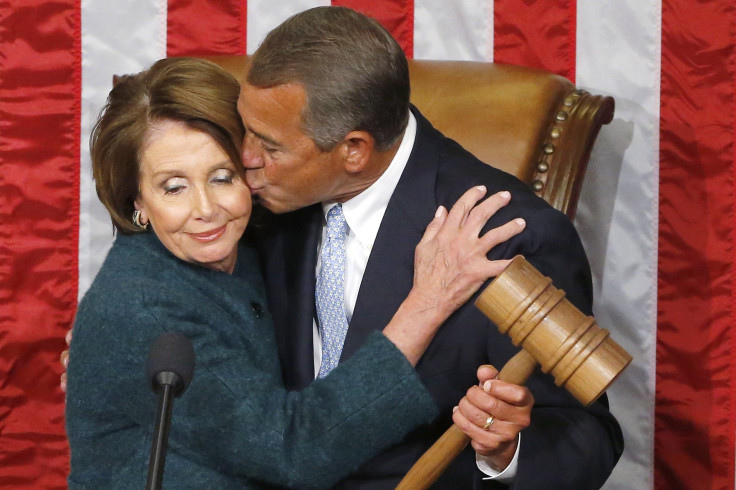Doc Fix 2015: Obama Signs $214 Billion Medicare Legislation, But Doubts Remain

President Barack Obama signed into law Thursday a landmark bill to change the way Medicare pays doctors. Commonly referred to as the "doc fix" bill, the legislation creates a new system for reimbursing doctors that gradually ties payments to the quality of care. Obama said the law will make the healthcare system "smarter" without diminishing service.
"This was a bipartisan effort, Republicans and Democrats coming together to do something that's smart and common sense," Obama said, USA Today reported. "My hope is it becomes a habit."
The $214 billion package cleared the House last month in a 392-37 vote, and the Senate passed it 92-8 late Tuesday. Since 1997, the government has used a complex formula called the Sustainable Growth Rate to calculate how much it would pay doctors who treated Medicare patients. But the formula was problematic, and if doctors had actually been paid according to it, they would have incurred major pay cuts every few years. To prevent those cuts, Congress has passed 17 stopgap "doc fix" bills since 2003, rather than overhauling the payment system. Those fixes were temporary, meaning that the matter of payment cuts to doctors would still have to be reexamined with a year.
With the new legislation, doctors would start to be paid according to the quality of care they provide, not the quantity. But that system, too, has doubters. Paying doctors according to the quality of care requires figuring out how to measure what counts as good care and what doesn't. And implementing the law will add $141 billion to the federal deficit over the next 10 years.
Still, the new Medicare law has been hailed as an example of lawmakers overcoming bipartisan gridlock and ending the congressional exercise, held at least annually, of finding a way to prevent doctors from being hit with major pay cuts. The legislation also renews the Children's Health Insurance Program, which covers <a data-cke-saved-href="http://A major bill to change the way Medicare pays doctors is slated for signature by U.S. President Barack Obama, passing the Senate one day before doctors would have received payment cuts of more than 20 percent. Commonly referred to as the " href="http://A major bill to change the way Medicare pays doctors is slated for signature by U.S. President Barack Obama, passing the Senate one day before doctors would have received payment cuts of more than 20 percent. Commonly referred to as the " doc="" fix"="" bill,="" the="" legislation="" creates="" a="" new="" system="" for="" reimbursing="" doctors="" that="" gradually="" ties="" payments="" they="" receive="" to="" quality="" of="" care="" provide.="" $214="" billion="" package="" cleared="" house="" last="" month="" with="" 392-37="" vote,="" and="" senate="" passed="" it="" 92-8="" late="" tuesday.="" since="" 1997,="" government="" has="" used="" complex="" formula="" called="" sustainable="" growth="" rate="" calculate="" how="" much="" would="" pay="" who="" treated="" medicare="" patients.="" but="" itself="" was="" problematic,="" if="" had="" actually="" been="" paid="" according="" it,="" have="" incurred="" major="" cuts="" every="" few="" years.="" prevent="" those="" cuts,="" congress="" 17="" stop-gap="" "doc="" bills="" 2003,="" rather="" than="" overhauling="" payment="" itself.="" legislation,="" which="" obama="" is="" expected="" sign="" into="" law="" when,="" start="" be="" provide,="" not="" quantity.="" system,="" too,="" doubters.="" paying="" requires="" figuring="" out="" measure="" what="" counts="" as="" good="" care,="" or="" doesn't.="" even="" questions,="" bill="" hailed="" overcoming="" bipartisan="" gridlock="" ending="" congressional="" exercise,="" held="" at="" least="" annually,="" finding="" way="" from="" being="" hit="" cuts.="" also="" renews="" children's="" health="" insurance="" program,="" covers="" about="" 8="" million="" children="" low-income="" families,="" another="" two="" years."="">about 8 million children from low-income families, for another two years.
© Copyright IBTimes 2024. All rights reserved.












